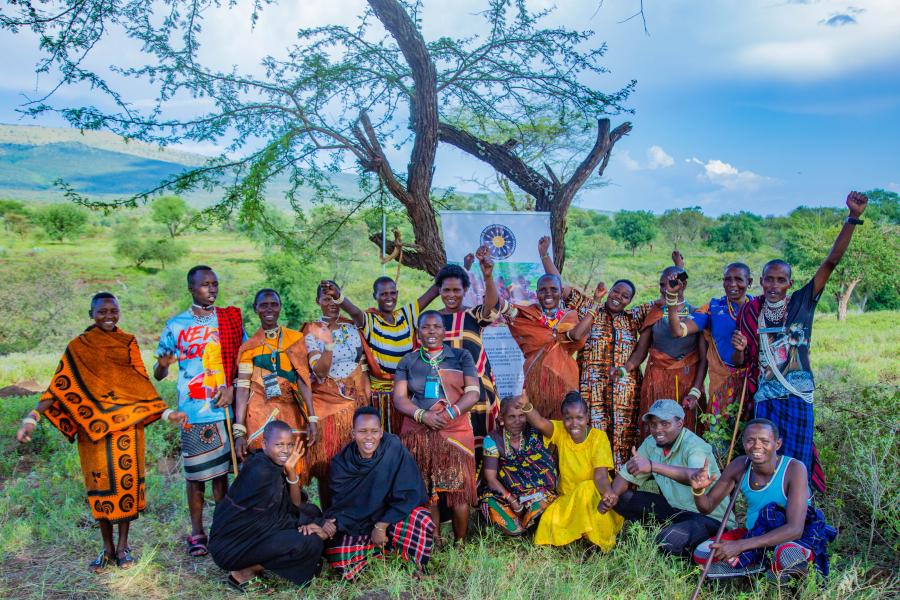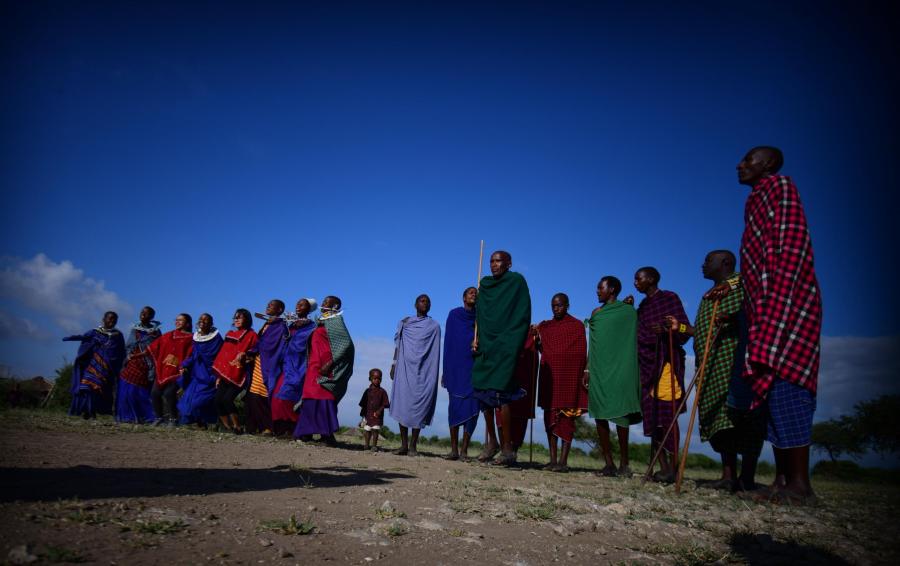The area known as the Mpimbwe Division, lying at the northern end of Tanzania’s Rukwa Valley, is home to the Pimbwe people. Lakes Katavi and Chada are sacred to the Pimbwe, and their former chiefs are believed to be buried at Lake Chada where the Pimbwe god Katabi can be seen driving herds of hippopotamus along the shore. With the establishment of the Katavi Game Reserve in 1954, as well as the Katavi National Park and its recent extension, the Pimbwe, who are traditionally hunters and horticulturists, have lost access to the rich flood plains and part of their spiritual homeland. They now live in villages to the south and west of the protected area, relying mainly on subsistence horticulture. Within the last 30 years, the Pimbwe have been joined by an immigrant agropastoralist group, the Sukuma, who have made their homes in and around existing Pimbwe villages. The growing Sukuma population adds to existing environmental concerns in the region as they clear large areas of land for cattle grazing and cultivation. While the Sukuma have been increasingly successful in the cultivation of rice, the Pimbwe lack the economic and social resources to become large-scale farmers and often end up as hired workers on Sukuma farms.
The Peoples of Mpimbwe Fund, a Cultural Survival Special Project, was founded early in 2003 with the express purpose of helping the people of Mpimbwe Division adjust to contemporary challenges while enabling them to protect their own particular ways of life and culture. The project appeals to both the Pimbwe and the Sukuma people as well as the many smaller ethnic groups within the region.
With collaboration from the Katavi National Park (KNP), Greystoke Safaris (the principal tourist camp inside the park), and a locally established non-governmental organization Miti na Mazingira ya Kibaoni (MIMAKI, Kibaoni Ward Environmental Conservation Society), the Peoples of Mpimbwe Fund will embark on two projects. First, with the consent of the KNP, the project will help the Pimbwe people develop honey production for a commercial market. Traditional methods of beekeeping are ecologically destructive, and the villagers are eagerly working with outside experts to modify their technology. A completely sustainable enterprise, the Kibaoni Ward Beekeeping project has the potential to yield up to $1,600 per year for one experienced three-person beekeeping team, boosting household income enormously. With 10 teams of workers, and approximately 200 hives per team, the project could earn up to $16,000 per year by promoting an activity that has long been culturally viable. This plan is mutually beneficial for the park as well as for the inhabitants of Kibaoni, as it will help define and maintain the borders of the reserve, increase pollination rates of native flowers and trees, and possibly reduce illegal poaching by the Pimbwe and Sukuma groups. Negotiating sustainable land use between Mpimbwe Division and the KNP is a positive step forward for all concerned.
The second project of the Peoples of Mpimbwe Fund is dedicated to another economic enterprise. After a series of meetings, the women of Mirumba—another village in the division—decided that the Peoples of Mbimbwe Fund could best help them by purchasing a milling machine. With exchangeable blades this machine can husk and grind, and can be used for maize and rice. The income generated from a small users’ fee will purchase fuel and spares, and possibly finance future projects. Currently, the nearest husking machine is seven kilometers away. With such a machine in the village, a family of six people could save approximately seven hours each week husking maize with the traditional mortar and pestle tools.
Adequate funding is crucial to the initiation of these projects. The Kibaoni Ward Beekeeping Project requires the purchase of special start-up kits that will ensure honey quality that passes European organic standards, protective clothes for the teams of workers who collect from the hives, and a building to store the produce for NGO collection. The women of Mirumba need funds to purchase the milling machine, and a building in which to house it. Approximately $5,100 total will be needed to complete the first stages of both projects, with all the labor to be volunteered by the villagers. While this is an enormous sum for the people of Mpimbwe Division, it is only a small fee to those of us who can give the local inhabitants of the region the economic power to make choices about their own lifestyles.
Alissa Dill is a Cultural Survival intern.


